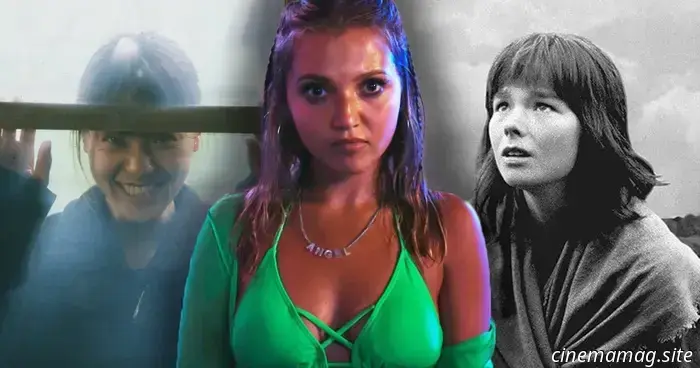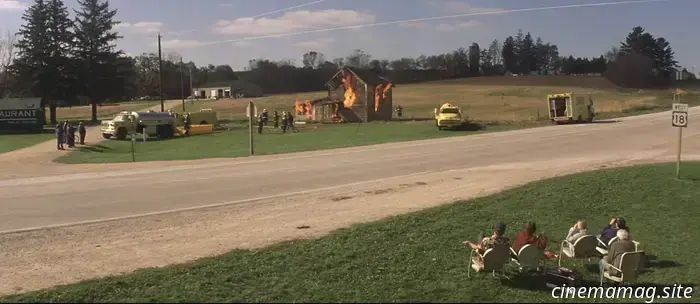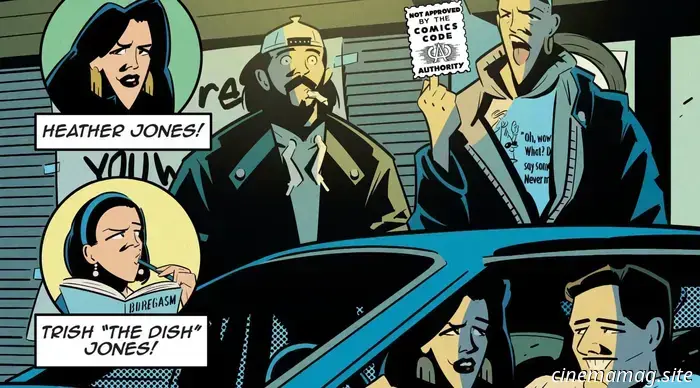
10 Profound Films You May Have Overlooked
There’s no easy way to escape here; it’s time to delve into these ten excellent, thought-provoking films that you might not have noticed...
It’s time to explore the depths. The beauty of cinema lies in its vast and diverse range of viewing options. If you're seeking simple escapism, you'll find it. If you're looking for intense portrayals of war, that's available too. Complex narratives brimming with intricate ideas? Chris Nolan definitely delivers on that front.
However, some films prefer to explore deeper themes, often taking straightforward plots and delving into profound character journeys. These films can touch upon broader topics or themes (such as class, society, masculinity, and sexuality) intricately woven into the narrative.
Cerebral, thought-provoking films don’t necessarily need to fit neatly into heady genre categories, but they engage the audience, inviting them to actively ponder deeper questions or examine the complex psychology of the protagonist and their surroundings. This type of cinema provokes contemplation and encourages a return for further reflection.
Numerous iconic examples exist: consider 2001: A Space Odyssey, which raises questions about existence and future evolutionary pathways, or more recently, Parasite, presenting a convoluted narrative rich in subtext, particularly exploring class dynamics in Korea. Yet, since such films aren’t typically box office hits, many exceptional works often go unnoticed. Here are ten profound films you may not have seen...
Nostalghia
Andrei Tarkovsky, perhaps the master of posing deep questions rather than adhering to narrative formulas, is known for his deliberately slow-paced films that effectively sift through viewers. His work is centered around emotional experiences that demand the audience engage with his unique treatment of time. When audiences do so, they are often enveloped by the earthy quality of his films, which are steeped in dampness, dust, and the whisper of wind through trees.
The settings in Tarkovsky's films feel alive, with protagonists frequently caught in existential or philosophical dilemmas. His exploration of religion is prominent as well. One of his less appreciated films, Nostalghia, also marks his first venture outside Russia following his exile. This Italian production features a Russian poet traveling to Italy to research an 18th-century composer, where he meets an eccentric societal outcast. Both characters find themselves at philosophical crossroads, with contrasting paths and a shared nostalgia for the past.
As with much of Tarkovsky’s work, Nostalghia is enigmatic yet evocative. No other filmmaker captures dreams quite like him. The film is visually stunning, featuring long, captivating takes and raises significant existential questions through its principal characters.
Moving
Shinji Somai achieved some level of recognition in Japan, with Moving especially enhancing his international appeal. The film focuses on a 13-year-old girl whose parents are undergoing a divorce, tackling relatable issues that resonate across language barriers.
Somai's film is beautifully filmed and carefully structured. His ability to capture intimate moments and the subtleties of the (initially) quietly resentful relationship between the parents and their daughter—who yearns for stability—is remarkable.
Moreover, the film isn’t just a keen observation of growing up in a fractured family setting; it also offers a deeper investigation into societal attitudes toward divorce and the challenges faced by young children reacting to a broken home. Simultaneously, Somai weaves in dazzling elements of magical realism. Tomoko Tabata shines as the young Renko.
Secret Sunshine
For Western viewers, Lee Chang-dong is likely most recognized for his recent masterwork, Burning, a slow-burning psychological thriller that places greater emphasis on the perspective of an unreliable protagonist rather than the complexities of investigating a potential murder.
He has also enjoyed success with films like Oasis and Secret Sunshine. The latter, featuring Jeon Do-yeon and Song Kang-ho (better known outside Korea for Parasite), delves deeply into profound grief and the role of religion as a support. A recently widowed woman moves to her husband’s hometown with her young son to begin anew.
A turning point in the film shifts it into darker territory and stages of grief; Shin-Ae (Do-yeon) seeks solace and communal acceptance in religion while grappling with feelings of rejection and punishment from God, leading her to rebel against him in a willful and amoral defiance. Do-yeon’s portrayal of anguish is raw and difficult to watch, while Chang-dong maintains a captivating, observant gaze. It stands as a true masterpiece.
Harvest
A more recent film that may have flown under the radar for those not subscribed to Mubi is Harvest, an intermittently dreamy psychological folk drama that perhaps suffered from marketing implying it was more horror-oriented than it is.
Set in a remote, pre-industrial village gradually affected by the outside world, it stars Caleb Landry-Jones as the enigmatic best friend of the village's de facto leader (Harry Melling). The community is rooted in age-old traditions and communal work











Other articles
 NYC Weekend Viewing: The Straight Story, Strange Days, Le Heist Français, and More
NYC Weekend Watch is our weekly overview of repertory screenings. Roxy Cinema will showcase The Straight Story, Looking for Mr. Goodbar, and Interiors on 35mm film, with Lex Walton presenting Venom and Eternity on Friday. BAM is launching a series dedicated to Angela Bassett, featuring 35mm prints of Strange Days and Waiting to Exhale. At Film Forum, films by Godard, Melville, Jules Dassin, and others will be screened.
NYC Weekend Viewing: The Straight Story, Strange Days, Le Heist Français, and More
NYC Weekend Watch is our weekly overview of repertory screenings. Roxy Cinema will showcase The Straight Story, Looking for Mr. Goodbar, and Interiors on 35mm film, with Lex Walton presenting Venom and Eternity on Friday. BAM is launching a series dedicated to Angela Bassett, featuring 35mm prints of Strange Days and Waiting to Exhale. At Film Forum, films by Godard, Melville, Jules Dassin, and others will be screened.
 Clive Barker’s Hellraiser: Revival gameplay trailer presents us with incredible visuals.
Saber Interactive and Boss Team Games have released the initial gameplay trailer for Clive Barker’s Hellraiser: Revival. This forthcoming story-focused survival horror game will immerse players in P...
Clive Barker’s Hellraiser: Revival gameplay trailer presents us with incredible visuals.
Saber Interactive and Boss Team Games have released the initial gameplay trailer for Clive Barker’s Hellraiser: Revival. This forthcoming story-focused survival horror game will immerse players in P...
 Comic Book Preview – Quick Stops Volume 3 Issue 4
Next week, Kevin Smith makes another return to the View Askewniverse with Quick Stops Volume 3 #4, introducing a brand-new story that features the Jones sisters, Heather, Tricia, and Alyssa, together for the first…
Comic Book Preview – Quick Stops Volume 3 Issue 4
Next week, Kevin Smith makes another return to the View Askewniverse with Quick Stops Volume 3 #4, introducing a brand-new story that features the Jones sisters, Heather, Tricia, and Alyssa, together for the first…
10 Profound Films You May Have Overlooked
This isn’t about easy escapism; it's the perfect opportunity to dive deep with these ten exceptional, thought-provoking films that might not be on your radar. Let's explore the depth of cinema…
